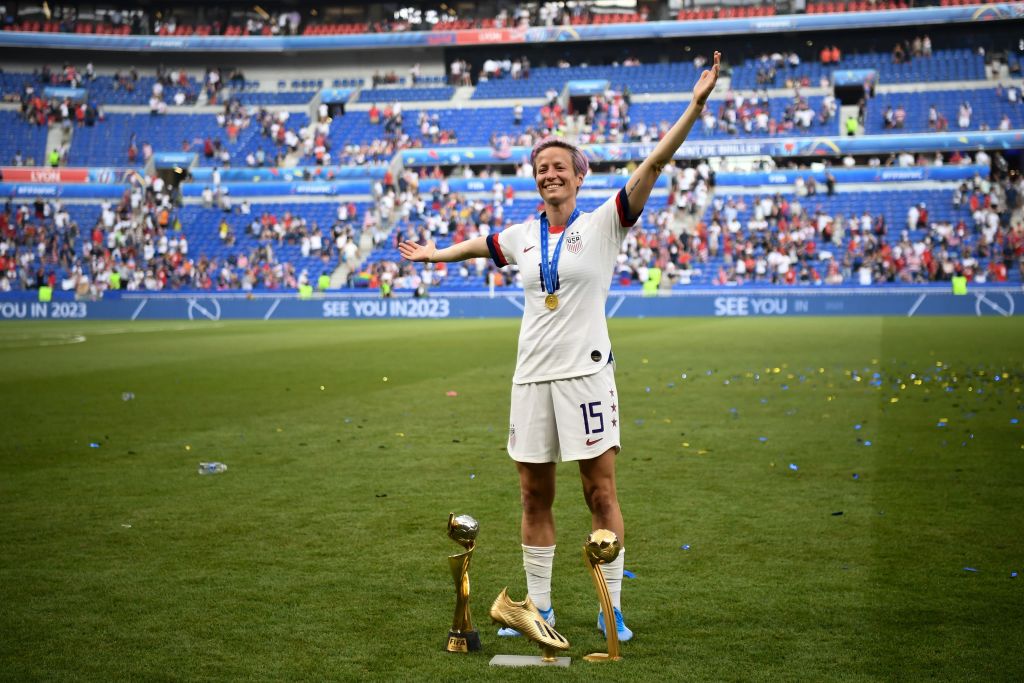The final of the women’s soccer World Cup in Lyon, France, started as a sporting contest but turned into a political rally. No sooner had the final whistle been blown than a chant of ‘equal pay’ went around the ground, along with boos for the president of Fifa, Gianni Infantino. In reply to a congratulatory tweet from Donald Trump, star player Megan Rapinoe hinted that she might boycott an invitation to the White House for the victorious team. And then we learn the entire team is suing US Soccer for gender discrimination. Not so much a sporting contest, then, than political activism in shorts and studded boots.
🗣 EQUAL PAY #USWNT pic.twitter.com/hQMGz6q54H
— Mina Park (@minapark) July 7, 2019
One could object to all this bleating by pointing out that it isn’t necessarily true that female soccer players are paid less than the men. National players in the women’s team receive a salary and bonuses whereas those in the men’s team receive only bonuses – so who ultimately gets paid the more depends on their relative performance. But what really caught my eye was Rapinoe’s explanation as to why she thinks that women players should be guaranteed to be paid as much as men. She said:
‘We as players, every player at this World Cup, put on the most incredible show that you could ever ask for. We cannot do anything more to impress more, to be better ambassadors, to take on more, to play better or do anything.’
In other words, we tried damn hard and therefore we should paid more. Such a statement betrays a total lack of understanding about labor markets. I am sure that Rapinoe feels she has worked pretty hard booting a leather ball around a pitch for 90 minutes. But if rewards for work were solely about how much physical effort you put into your job it would be hard to justify why Rapinoe – who was reported to earn $160,000-a-year playing for Seattle Reign FC – should be paid more than a $20,000-a-year manual worker who expends even more energy, and for longer each day. I doubt that Rapinoe would really want a communist paradise where everyone is paid the same – she seems quite happy with pay inequality when it works in her favor.
What allows top sportspeople to earn so much, of course, is that rewards for labor are not based on the level of physical or mental effort which goes into a job but on what value the market puts on your work. If large numbers of people want to pay to watch you play a sport then it is right that you are paid your fair share of the rewards.
The reason women soccer players are not paid as much as their male equivalent is, quite bluntly, because fewer people want to watch them. While interest in the women’s game is rising, it is still a long way behind the men’s game. Last year’s men’s World Cup was watched at some point by 3.5 billion people – half the world’s population. The last women’s World Cup, in Canada in 2015, was watched by 750 million. Women players demanding equal pay are asking for a huge cross-subsidy from the men’s game so that they can be paid salaries that they have not earned.
Bleating about equal pay will damage the women’s game – not just because it will put off casual watchers like me who have a limited appetite for watching televised sport but who, when we do watch it, want to be entertained, not hectored. If owners of women’s teams and organizers of women tournaments are forced to pay salaries to players based on the earnings in the much more lucrative men’s game, they are not going to want to own those teams or organize those tournaments. US women’s soccer players should enjoy their success while they can, before they price themselves out of a job.


















